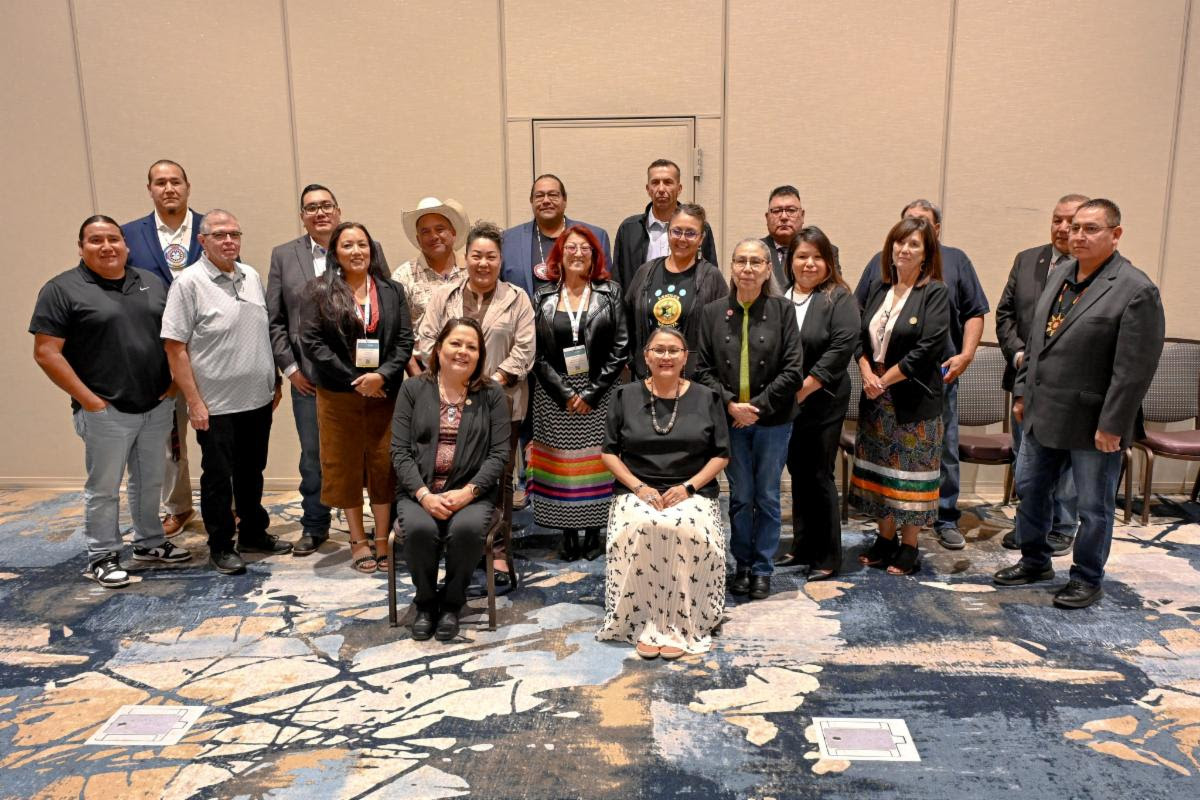
- Details
- By Native News Online Staff
On September 10, Law and Order Committee Chair Eugenia Charles-Newton met with senior leadership from the U.S. Department of Health and Human Services (HHS), including Mark Cruz, Senior Counselor to HHS Secretary Robert F. Kennedy, Jr., to discuss critical issues affecting tribal communities during a government-to-government consultation.
Chair Charles-Newton raised longstanding challenges facing tribal nations, including systemic healthcare barriers, vaccine equity, limited access to federal funding, and the urgent need for meaningful tribal consultation in agency reform processes. She voiced concerns over declining COVID-19 vaccine allocations to Indian Health Service (IHS) facilities across the Navajo Nation. Despite an increase in infections, some hospitals are reportedly receiving fewer doses than in previous years.
“Our communities are still battling the impacts of COVID-19, and we can’t afford to be left behind again,” said Delegate Charles-Newton. “Decisions are being made to limit vaccine access based on age or national supply models, without considering the health realities in Indian Country.”
She also reminded HHS officials of Secretary Kennedy’s recent visit to the Navajo Nation, during which he acknowledged the role of past federal food policies in contributing to chronic health conditions—such as diabetes and heart disease—that heighten COVID-19 risks in Native populations. In response, Cruz pledged to raise the issue with the Deputy Secretary’s Office and committed to following up on both vaccine distribution protocols and supply inconsistencies.
During the consultation, Cruz outlined upcoming HHS initiatives addressing tribal priorities. He announced an upcoming funding opportunity through the Rural Health Transformation Program, set to open applications in the coming weeks. He urged tribes to collaborate with state partners and design proposals focused on innovative health models rather than general operations. Cruz also expressed interest in organizing a tribal-state summit to foster strategic planning and coordination.
Regarding Indian Health Service reform, Cruz said two initiatives are currently in progress: a regional realignment to improve direct services and a broader departmental reorganization aimed at enhancing accountability and tribal engagement. He noted that expanding tribal representation at federal agencies, including the Centers for Disease Control and Prevention (CDC), is under consideration, contingent on tribal feedback.
Tribal leaders from the Rosebud Sioux Tribe, Walker River Paiute Tribe, Blackfeet Nation, Crow Creek Sioux Tribe, and Oglala Sioux Tribe also participated in the consultation. They echoed similar concerns, highlighting mental health crises, Medicaid access disparities, and the importance of culturally appropriate nutrition programs. Specific recommendations included incorporating traditional Indigenous foods like bison and salmon into USDA food distribution efforts. Cruz agreed to explore improved coordination between HHS and USDA to support these proposals.
Chair Charles-Newton concluded by reaffirming that the Navajo Nation and the Coalition of Large Tribes (COLT) will continue to advocate for greater equity in federal programs and policies affecting large land-based tribal nations, emphasizing the importance of continued direct engagement with agencies like HHS.
More Stories Like This
Utah May Take ‘The First Step of Many’ to Better Investigate Missing and Murdered Indigenous PeopleNational Indian Health Board's Strategic Plan Listening Tour Underway
‘You Are Never Alone’ | How One Tribe Is Fighting Youth Suicide With Culture and Crisis Response
‘Our Culture is Prevention’
This National Cancer Prevention Month, Reduce Your Risk


